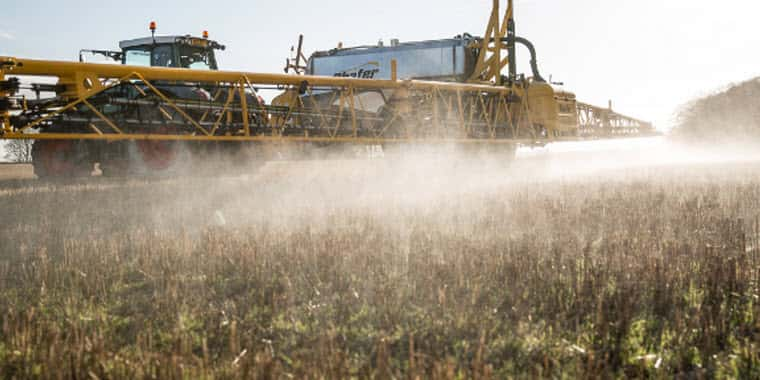As global agriculture faces mounting pressure from crop losses, rising populations, and increasingly resistant pests, Bayer is strengthening its investment in innovative weed management and addressing ongoing litigation related to its glyphosate-based product, Roundup™.
The company is actively pursuing measures to manage and reduce litigation risks in the U.S., where most claims have come from residential lawn and garden users. To help mitigate future claims, Bayer transitioned to alternative formulations for its residential glyphosate products in 2023. These changes, which the company emphasizes, are not due to safety concerns but are aimed solely at reducing litigation risk. Glyphosate remains a cornerstone of Bayer’s agricultural and professional product lines, which continue to be used globally.
“Based on decades of scientific research and global regulatory assessments that consistently affirm Roundup’s safety and non-carcinogenicity, we remain confident that this litigation will come to an end,” a Bayer representative stated.
Beyond litigation, Bayer is focused on the broader challenge of sustainable farming. With the United Nations projecting a global population increase of two billion by 2050 and current data showing that 40% of global food crops are lost annually to pests and disease, the need for effective crop protection has never been greater.
While growing a backyard garden may seem simple, modern farming is anything but. Feeding the world at scale requires a precise mix of tools, technologies, and practices. Bayer is responding to this challenge with an integrated approach that combines chemical and biological products with cutting-edge digital tools—a strategy known as Integrated Weed Management (IWM).
“IWM is at the core of everything we do,” the company said. “As plants and pests evolve, so must the tools we provide to farmers.”
A direct excerpt from a BAYER article said new lawn and garden formulations does not impact any of their glyphosate-based agriculture or professional products.
‘To further reduce future litigation risk, we have transitioned the manufacturing of our glyphosate products for the U.S. residential L&G market to new formulations that have different active ingredients starting in 2023. We have taken this action exclusively to manage litigation risk and not because of any safety concerns. The vast majority of claims in the Roundup litigation have come from residential L&G users, so this step largely eliminates the primary source of future claims. This action does not impact any of our glyphosate-based agriculture or professional products, or Roundup products available worldwide.’
Bayer invests over $2 billion annually into research and development for farming solutions—nearly double that of its closest competitors. Over the next decade, more than $5 billion of that investment will go specifically toward advancing IWM strategies.
In 2020, the company announced the discovery of a new herbicide molecule for broadacre crops—the first of its kind in more than 30 years. This discovery is a major milestone, especially given that only one in approximately 160,000 potential candidates typically makes it to market.
This innovation, coupled with Bayer’s investment in digital agriculture, aims to give farmers more precise, sustainable tools for protecting their crops, conserving natural resources, and managing resistance risks.
“As a global leader in agriculture, we know we have a responsibility to support growers and steward the future of farming—for society and the planet,” the company stated.
With continued advancements and a deepened commitment to research, Bayer is looking to empower farmers to meet today’s challenges—and tomorrow’s—with confidence and resilience.
####
BAYER/ Northern Ag Network – 2025


